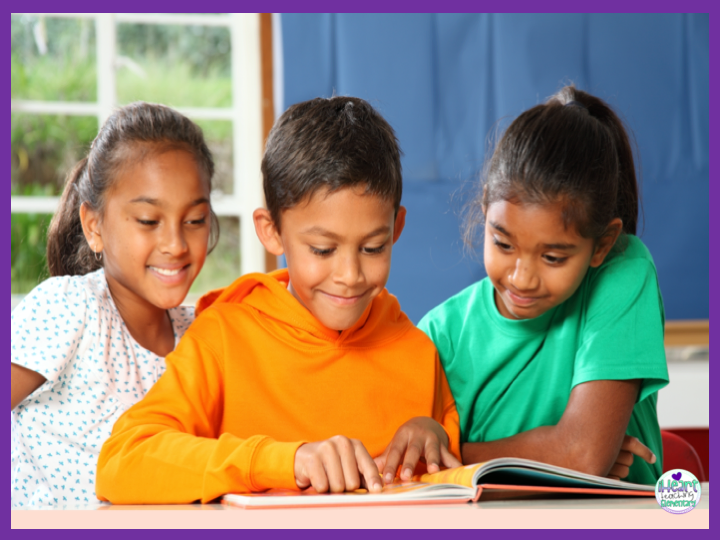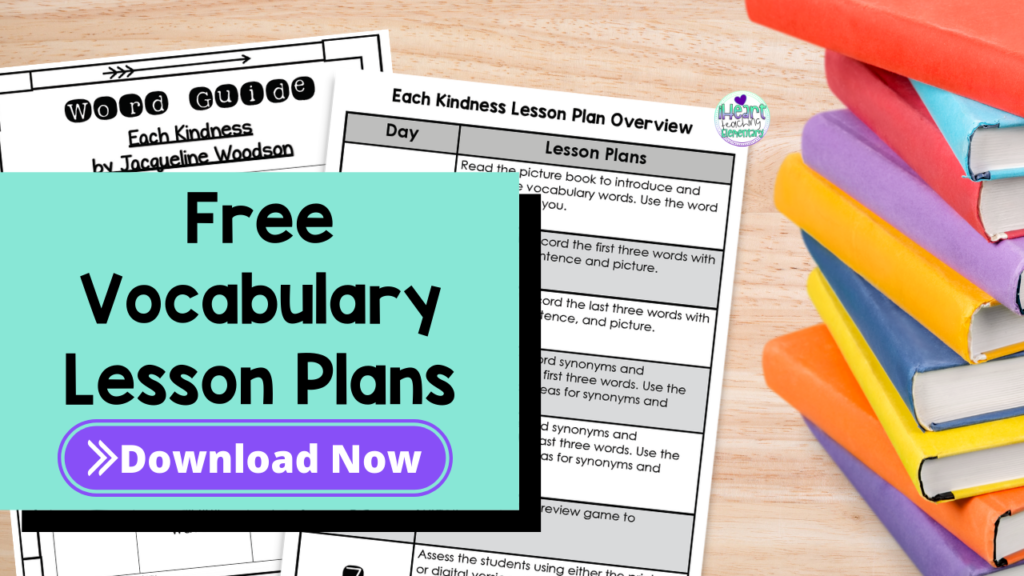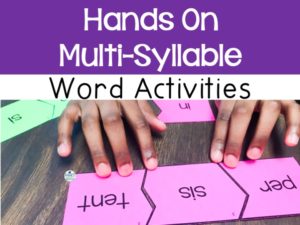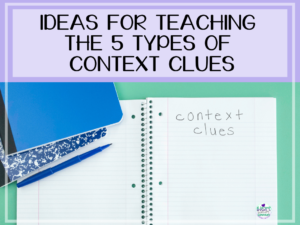As a kid you might have been taught to flip through a dictionary and look up words and write down their meanings. Although dictionary skills are still important, there are better ways to teach vocabulary that are not so darn boring.
I hope that doesn’t come across as harsh. But can we agree that looking up words for the sole purpose of teaching vocabulary is a snooze fest?
In this post I’ve listed some practical and authentic ideas for teaching vocabulary to kids.
Pre-teaching Vocabulary
Have you ever read something with difficult words and had a hard time understanding what you were reading? The same thing happens to kids.
Pre-teaching vocabulary is important because it helps kids understand the text they are reading. This is important for ELLs who haven’t been exposed to the word in context.
You can pre-teach the word by saying it aloud, giving the meaning, and asking kids to make connections to the word.
For example, if you are pre-teaching the word ancient, say the word and tell the kids what the word means. To make a connection, ask them for examples of something that would be ancient.
Let’s use the word respect as another example. Say the word respect aloud. Give the meaning and then ask the kids to tell about a person in their life that they respect.
This seems so simple but discussing words in a pre-teaching format helps vocabulary growth. But pre-teaching should not be used for all words. It’s also important for kids to practice using context to learn words.
When I teach a set of words, I like to use direct instruction, or pre-teaching, for half of the list. Then we use context to figure out the meanings of the rest of the list.

Find Words to Improve Vocabulary
One of my favorite ways to teach vocabulary is through picture books. This is an authentic way for kids to learn new words. We come across tons of words as we read. So it’s only natural to use context to figure out the meanings of unknown words.
Using picture books to teach vocabulary may seem like it’s for younger kids. But older kids LOVE picture books. Many picture books are written at a higher reading level. So it’s a great place to find new words for kids to learn.
But you can find words to improve vocabulary in a variety of texts: novels, magazines, recipes, signs, menus.
When you discover a new word, discuss it, and make connections to it.
When a kid discovers a new word in an authentic way, they remember it because they can make connections with the word.

Find Synonyms and Antonyms
Having kids search for synonyms and antonyms also helps vocabulary development. The website www.thesaurus.com is a great resource to use.
When we learn a new set of words, I have the kids use thesaurus.com to look up a synonym and antonym for each word.
How is this authentic?
Have you ever asked Siri what a word means? I certainly have! This is how we do a lot of our research when we don’t know something. So it’s natural for kids to look up synonyms and antonyms on the internet.
When they find possible words, we have great discussions about why or why not a word is a good fit for a particular vocabulary word. We talk about connections we have to the words. Now they’ve learned not only synonyms and antonyms for our word list, but have increased their vocabulary by discussing those words that aren’t a good fit.
So this means that if our word list has 6 words on it, they actually learn at least 18 new words. And if they come across any of those words in their reading, they’ll comprehend better. They’ll also be more inclined to use the words in their writing.

Play a Vocabulary Game!
Kids love a good game. And it’s a fun way to review vocabulary words. I wrote a post about vocabulary games you can play using any word list HERE.
Here are a couple more practical games you can play right now:
Pictionary: Draw a picture that shows what the word means. Then the kids guess which vocabulary word best describes the picture.
Skit: I like to group kids and have them perform a skit that goes with a vocabulary word. Or the teacher can be the one to perform. After the performance, the audience has to guess what the word means.
Super simple but the kids love these games.
Did these ideas sound a lot more interesting than that boring dictionary work?




